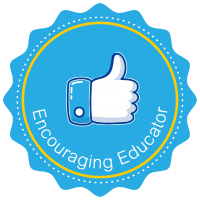As an educator, one of the most impactful practices I have integrated into my routine is called “Advisory.” This approach focuses on the holistic development of students by fostering strong relationships, providing emotional support, and guiding personal growth. Advisory is not just another task on the educational agenda; it’s a dedicated time for connecting with students on a deeper level, beyond academic achievements.
What is Advisory?
Advisory is a structured, yet flexible, time during the school day where I meet with my advisees one-on-one. These sessions are not about delivering academic content but about building a strong, trusting relationship with each student. The primary goal is to create a supportive environment where students feel comfortable sharing their thoughts, concerns, and aspirations.
During these sessions, my advisees can talk to me about anything, and they know that whatever they share remains confidential. This assurance of privacy helps them open up about their personal experiences, whether it’s about their hobbies, what they enjoy doing outside of school, or what challenges they might be facing in their academic or personal lives.
The Importance of Advisory in Student Development
In today’s fast-paced educational environment, students often face a range of pressures—from academic performance to social challenges. The Advisory practice serves as a vital outlet for them to express themselves and receive guidance tailored to their unique needs. Here’s why Advisory plays such a crucial role:
1. Building Strong Relationships : One of the core benefits of Advisory is the deep, trusting relationships that develop between me and my students. Through our one-on-one sessions, I get to know my students on a personal level, understanding their strengths, challenges, and what truly motivates them. This connection makes students feel seen and heard, fostering a sense of belonging and security in the school environment.
2. Creating a Safe Space for Open Dialogue : The confidentiality of our conversations is a key aspect of Advisory. Students know they can discuss anything without fear of judgement or repercussions. Whether they are struggling with a particular subject, dealing with a personal issue, or simply want to share something exciting about their hobbies, they can do so freely. This openness builds trust and allows me to provide the specific support they need.
3. Supporting Personal Growth and Development : Advisory sessions are not just about addressing challenges; they’re also about celebrating successes and planning for the future. We discuss what’s going well in their academic journey, what help they might need, and how they can continue to grow. This process helps students develop a sense of self-awareness and encourages them to take an active role in their personal development.
4. Transformative Outcomes Through Advisory : The real impact of Advisory becomes evident through the changes I’ve seen in my students. For instance, I once worked with a child who was labelled lazy and incompetent by others. Through our sessions, I discovered that this student was actually very sensitive and didn’t like to bother people with his needs. By understanding this, I was able to provide the right kind of support, which dramatically changed his attitude and performance in school. In another case, a child who had been struggling academically opened up during an Advisory session and shared some family problems that were weighing heavily on his mind. This disclosure allowed us to address the root cause of his academic struggles, leading to a significant improvement in his focus and grades. These examples highlight how the Advisory process can uncover underlying issues that might otherwise go unnoticed, enabling more effective interventions.
Conclusion
The practice of Advisory is more than just a part of my teaching routine; it’s a cornerstone of my approach to student development. By creating a confidential space where students can openly discuss their lives, interests, and challenges, Advisory helps them grow not just as learners, but as individuals. This practice allows me to connect with my students in meaningful ways, guiding them through their educational journey and supporting them in becoming well-rounded, resilient, and confident individuals. In a world where the pressures on students are greater than ever, the role of Advisory in education is indispensable. It reinforces the idea that education is not just about academics; it’s about nurturing the whole person. The results speak for themselves—when students are supported holistically, the outcomes are truly transformative.
-Saloni Mehta



This article beautifully captures the essence of the Advisory practice in education, highlighting its profound impact on student development. Saloni2201 emphasizes the importance of building trust and providing a safe space for students, which aligns with my own experience as an educator. The examples shared demonstrate how addressing students’ personal needs can lead to significant academic and personal growth. I appreciate the focus on holistic development, which reminds us that education is about nurturing the whole person, not just academic achievement. Overall, it’s an insightful and inspiring read for anyone invested in the future of education.